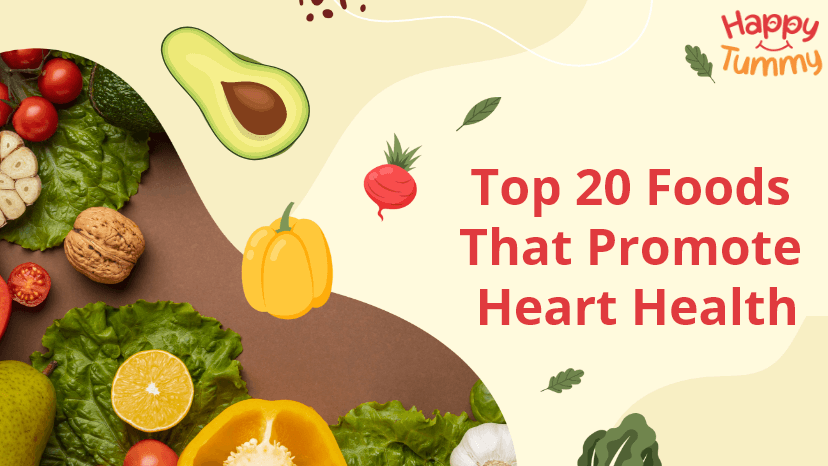Table of Contents
Heart health is something we should all be focusing on. Our heart does so much for us. They pump blood throughout our bodies daily, distributing nutrients and oxygen from head to toe and providing us with the energy we need to go through the day.
There is no one-size-fits-all “set it and forget it” approach to heart health. Instead, many little adjustments that become habits lead to a healthy heart.
A balanced diet and lifestyle are crucial for heart health. It’s not as difficult as you may imagine. Understand the essential things your heart requires, and it will be easy to select heart-friendly foods.
So, to make things easier, read this blog, which will discuss the top 20 foods that promote heart health.
Nutritional Guidelines for Healthy Heart
Eating foods that contribute to achieving or maintaining good blood pressure and cholesterol levels is the aim of a heart-healthy diet. [1]
- Reducing low-density lipoprotein (LDL), the bad cholesterol that damages the heart, and other dangerous lipids (fatty molecules), such as triglycerides, are crucial for heart health.
- Raise HDL or high-density lipoprotein, the beneficial cholesterol.
- Manage blood pressure. Readings below 120/80 are considered normal, and those between 120/ and 129/less than 80 are raised. For adults, Normal blood pressure is defined as 120/80 mmHg.
- When blood pressure is equal to or above 140/90 mmHg, it is considered to be raised or high.
- Keep your weight within a healthy range.
You can accomplish these goals with regular exercise and the foods you eat.
- Have a Diverse, Balanced Diet that includes all the food groups in the right quantity, providing your body with all the essential macro and micronutrients it requires daily for proper functioning.
- Consume a minimum of 5 servings of vegetables and 1 serving of fruit, as they are rich in Fiber, essential minerals, and vitamins and give you a feeling of satiety. Regular consumption of fruits has been linked to cardiometabolic health due to their high content of bioactive compounds that potentially reduce the risk of heart disease.
- Try to consume more Whole grains, Millet, and Multigrain foods, as they are a good source of fibre.
- Prefer lean meat (chicken, Fish) over full-fat red meat.
- Certain foods, such as soybeans, fenugreek, garlic, onion, flaxseeds, oats, and turmeric, can be included in a balanced diet due to their antioxidant properties and biochemical compounds.
- Certain foods, like flaxseed and walnuts, are characterised by a high content of MUFA, PUFA, vegetable protein, dietary fibre, vitamins (vitamins E, K, folate, B1), and minerals (magnesium, copper, potassium, and selenium). They also contain phenolic acids, stilbenes, tocopherols, flavonoids, and melatonin, which may potentially reduce the risk of cardiovascular diseases.
- Some oils, such as rice bran, flaxseed, and sesame oil, contain phytonutrients. These active compounds have the potential to lower blood TG concentrations. Mixed rice bran, flaxseed, and sesame oils to improve blood lipid profile and cardiometabolic health.
- Foods rich in antioxidant-containing carotenoids and vitamin E may potentially provide cardiovascular benefits.
- Whole grains, fruits and vegetables are a good source of antioxidants.
- Limit your intake of deep-fried foods. Methods of cooking like baking, grilling, boiling, and steaming are preferable to deep-frying with excess fat/ oil.
- Try switching from saturated and trans fats to MUFA (mono-unsaturated fatty acids) & PUFA (polyunsaturated fatty acids).
Heart Healthy Foods
1. Leafy Green Vegetables
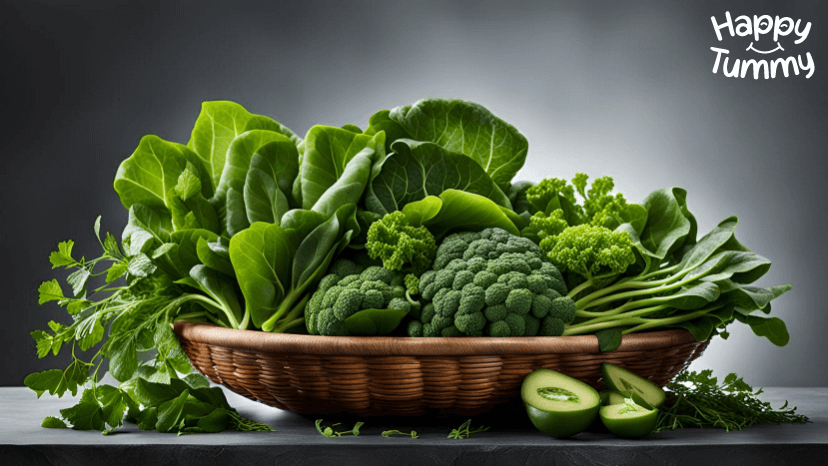
Leafy greens, such as collard greens, spinach, and kale, are renowned for their abundant antioxidants, vitamins, and minerals.
Specifically, they are an excellent source of vitamin K, which might support healthy blood circulation and protect your arteries.[2]
GLV (green leafy vegetables ) contain folic acid, vitamins A, C, E and K, as well as high amounts of calcium, iron, potassium, phosphorous, zinc & phytochemicals which may be protectively associated with CVD risk [35].
They are also rich in dietary nitrates, which may lower blood pressure, lessen arterial stiffness, act as a natural vasodilator, and enhance the activity of blood vessel lining cells.
So, eating your greens is a common opinion you might often hear.[3] It is recommended to consume 400g of vegetables along with GLV everyday as a part of your daily balanced diet.
2. Whole grains
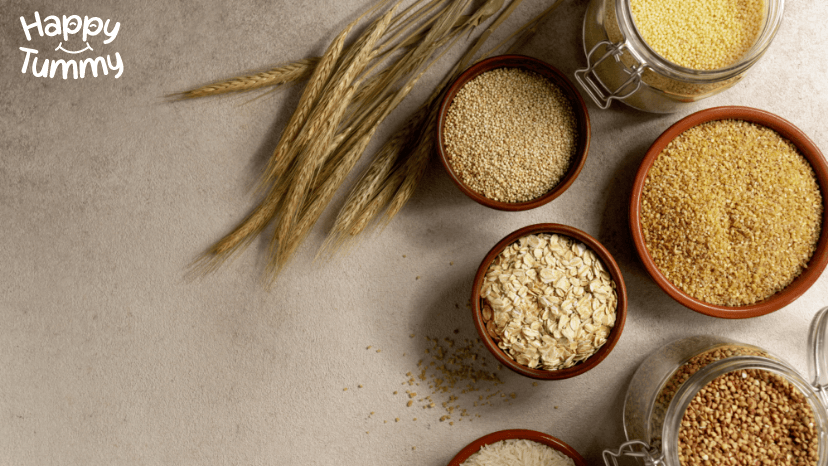
Whole grains contain bran and gems with all the essential nutrients your heart requires. Most fibre, B vitamins, vitamin E, trace minerals, and antioxidants are in the bran and germ.
Whole grain fibre may assist in managing LDL cholesterol or bad cholesterol. Iron, magnesium, selenium, and B vitamins are all found in whole grains and are necessary for blood oxygen transport and cell division.[4]
Sorghum, brown rice, rolled oats, and whole-grain bread are a few whole grains.
Try AASHIRVAAD WHOLE WHEAT ATTA, which offers you the best whole-wheat grains from the farmers. They are manufactured with the best grains, which are dense and have a lovely amber colour.
3. Berries
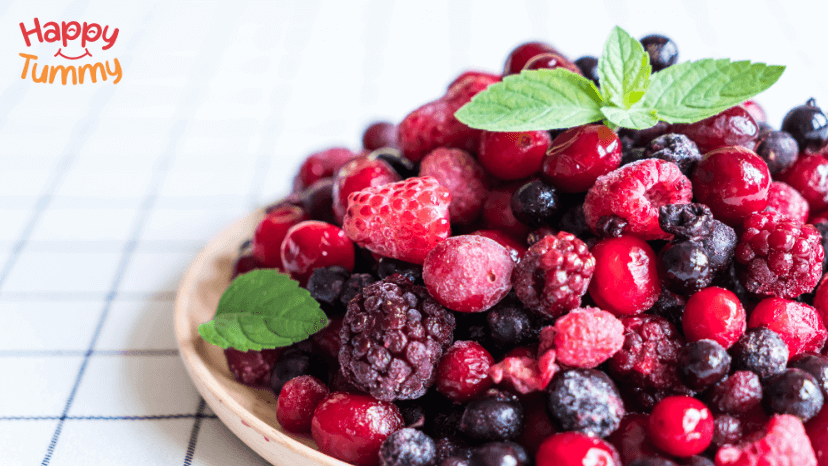
The antioxidants found in berries, such as anthocyanins, guard against inflammation and oxidative stress, two factors that can develop or trigger heart issues.
Consuming more anthocyanins may support overall heart function and manage the risks of hypertension and heart attacks.[5]
Human intervention studies using chokeberries, cranberries, blueberries, and strawberries (either fresh, or as juice, or freeze-dried), or purified anthocyanin extracts have demonstrated significant improvements in LDL oxidation, lipid peroxidation, total plasma antioxidant capacity, dyslipidemia, and glucose metabolism.
Consuming blueberries daily may also enhance vascular function, which regulates blood pressure and blood coagulation by improving the activity of the cells lining blood vessels.[6]
Berries make a tasty dessert or a filling snack. Try including a few different kinds in your diet to get their health advantages.
4. Avocados
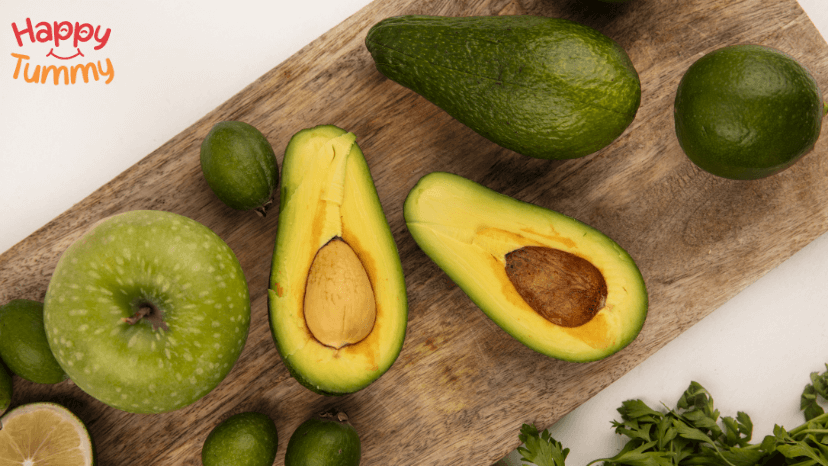
Monounsaturated fats, (MUFA) Avocado contains total monounsaturated fatty acids (TMUFA)- 8710mg/100g & Total Polyunsaturated fatty acids (TPUFA) – 1141mg/100gwhich are abundant in avocados, may help in maintaining normal cholesterol levels.[7]
Avocado fibre may raise HDL cholesterol levels and enhance LDL cholesterol quality.[8]
Additionally, avocados include phytonutrients, bioactive compounds, potassium, and magnesium.
You may swap high-saturated-fat foods like cheese, butter, and fatty meats with avocados in salads, sandwiches, or toast.
5. Walnuts
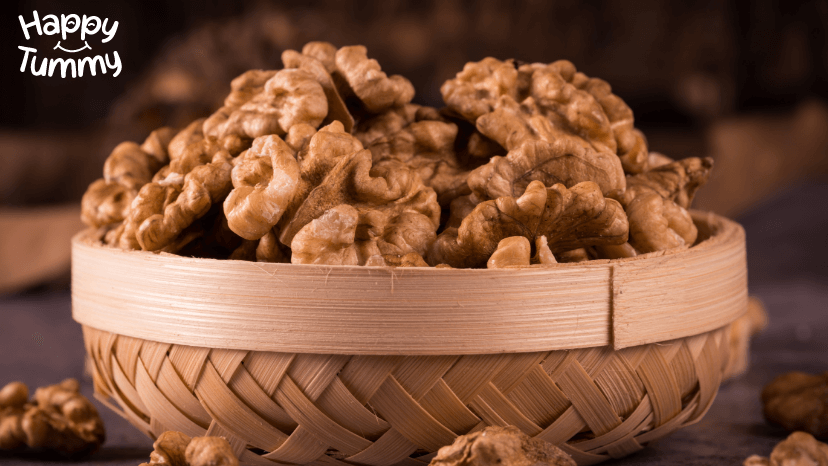
Walnuts are suitable for the heart because they are high in omega-3 fatty acids, particularly alpha-linolenic acid.[9] They have antioxidants like polyphenols and vitamin E that can help against oxidative stress from LDL (“bad”) cholesterol.[10]
These little nuts are a fantastic source of micronutrients, including manganese, copper, magnesium, and fibre.
6. Beans
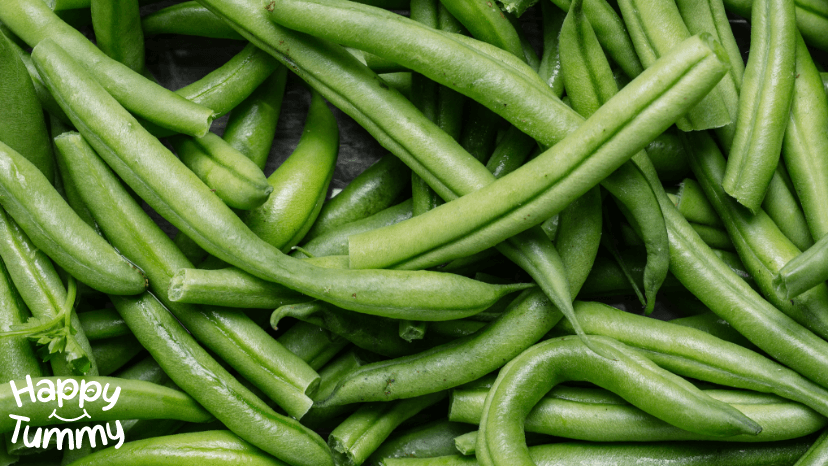
Due to their high soluble fibre content, beans may help lower LDL (harmful) cholesterol level. [11] They are high in folic acid and potassium, which may help control artery narrowing and reduce the risk of cholesterol buildup. [12] [13]
Add them to pasta dishes, salads, and soups. Mix them with cooked greens and garlic or toss them with sautéed vegetables.
7. Tomatoes

Lycopene, a naturally occurring plant pigment with potent antioxidant qualities, is abundant in tomatoes.[14] By scavenging dangerous free radicals, antioxidants help avoid inflammation and oxidative damage, which can lead to heart disease.[15]
Tomatoes ripe hybrid contain- 2482 µg/100g of lycopene
Tomatoes ripe, local- 1736 µg/100g lycopene
Lycopene deficiency is associated with a higher risk of heart attack and stroke.[16] Supplementing with lycopene and increasing consumption of tomato products may positively impact heart health, blood pressure, and blood lipids.
Cooked tomatoes and tomato-based products are better for the body to absorb lycopene than raw tomatoes.
8. Almonds
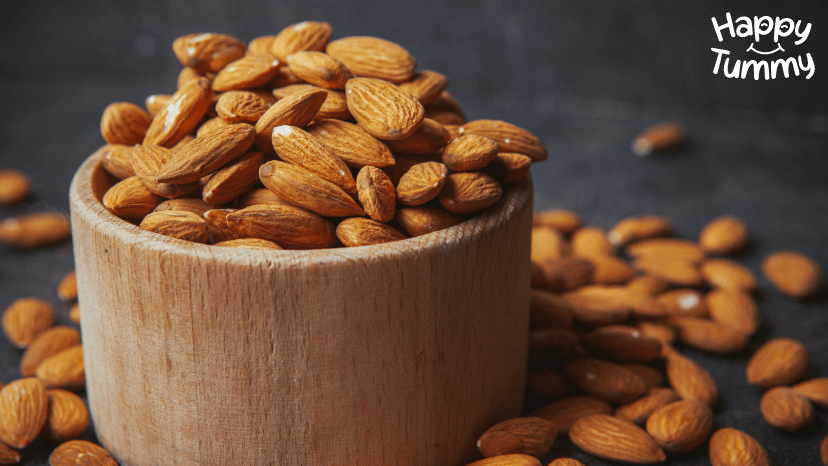
Almonds include a wealth of vitamins and minerals essential for heart health, making them highly nutrient-dense.
Additionally, they are a high source of magnesium, fibre and heart-healthy monounsaturated fats, two vital elements that may help manage heart disease.[17]
Almonds may have a significant impact on your cholesterol levels.
Consuming almonds may raise HDL (good) cholesterol levels, thereby managing plaque accumulation and maintaining clean arteries.[18]
Usual dietary intake of magnesium is associated with a decreased risk of CVD, including fatal ischemic heart disease.
100g of almonds contain – 318mg of magnesium
Remember that almonds are heavy in calories, even if they are highly nutrient-rich. If you attempt to lose weight, restrict your consumption and measure your servings.
9. Chia Seeds, Flaxseeds, And Hemp Seeds
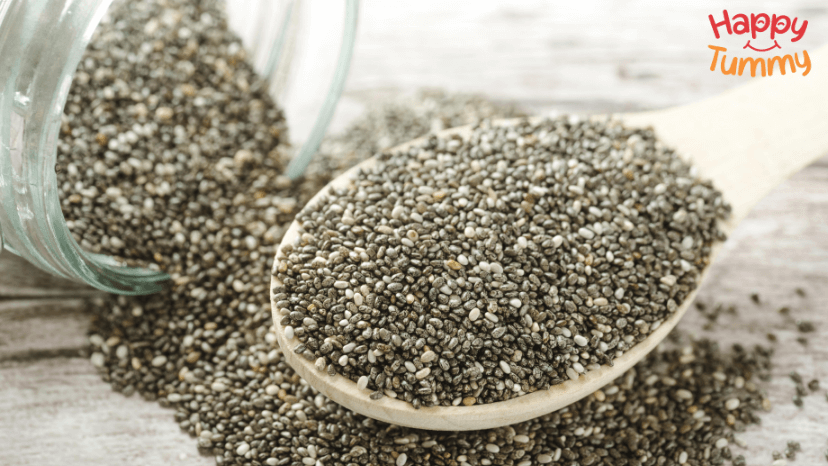
Hemp, flax, and chia seeds are excellent providers of heart-healthy nutrients, including omega-3 fatty acids and fibre.
Consuming these seeds may help lower blood pressure, cholesterol, lipids, inflammation, and other heart disease risk factors.
Arginine, an amino acid found in hemp seeds, is linked to lower blood levels and some inflammatory indicators.[19]
Adding flaxseed to your diet may aid with gastrointestinal health and cardiovascular health. Alpha-linolenic acid, a heart-healthy omega-3 fatty acid, is abundant in flaxseed.[20]
Another excellent source for heart health is chia seeds, which are high in omega-3 fatty acids, dietary fibre, and antioxidants. Consuming them may lower LDL cholesterol, blood clotting, and blood pressure.[21]
10. Garlic
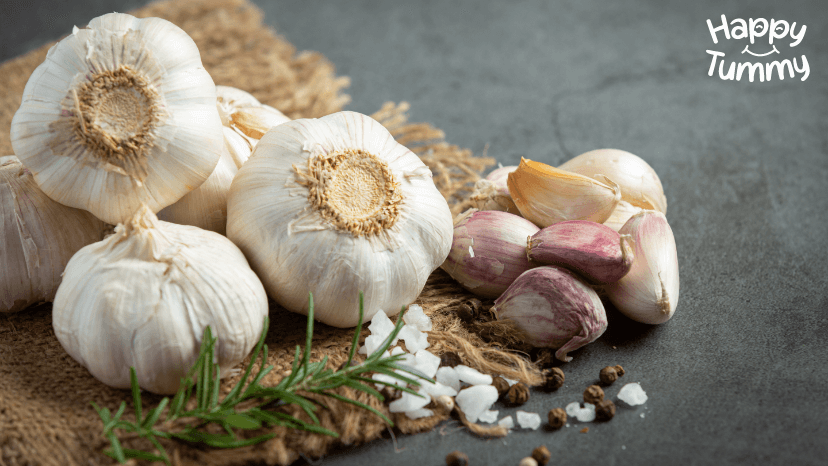
Garlic may assist in enhancing heart health because of its robust therapeutic characteristics.
This is because of an antioxidant called allicin, which relaxes blood vessels and may lower blood pressure thereby reducing the risk of CVD or stroke. [22]
Use garlic raw or smash it and let it for a few minutes when using it in cooking. This facilitates the synthesis of allicin, optimising its possible health advantages.
11. Olive Oil
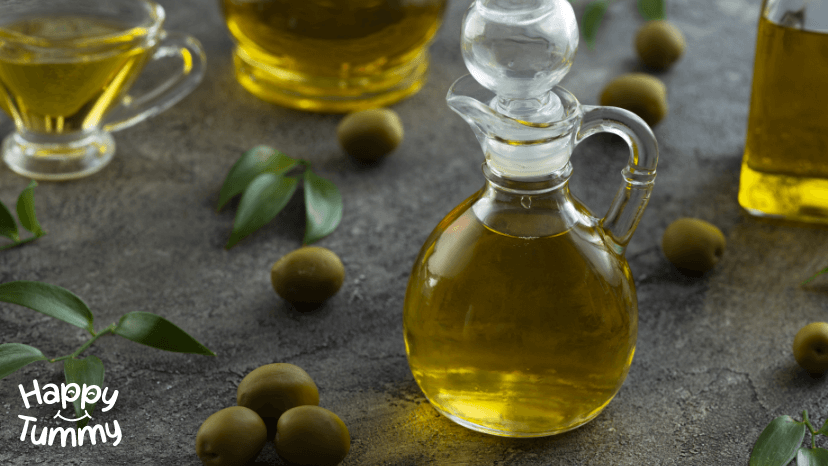
Antioxidants included in olive oil help reduce inflammation and lower the chance of developing chronic illnesses.
It has monounsaturated fatty acids (MUFAs), which can help keep arteries clean and prevent heart disease by raising HDL (“good”) cholesterol and lowering LDL (“bad”) cholesterol.[23]
Because it is primarily unsaturated fat, it is a heart-healthy option. Add olive oil to sauces and vinaigrettes, or sprinkle it on overcooked food.
12. Green Tea
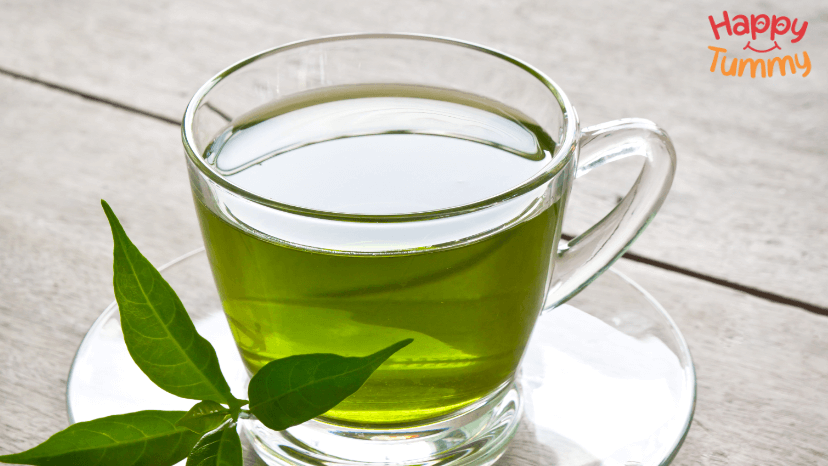
Catechins are the main component in green tea that supports heart health.
With their anti-inflammatory, anti-oxidative, and lipid-lowering qualities, these antioxidants may help protect blood vessels and manage blood pressure.
Further, green tea increases leptin, a hormone that regulates our appetite, and reduces LDL (bad) cholesterol.[24]
13. Citrus Fruits

This citrus fruit is rich in potassium and fibres that lower cholesterol, which can help regulate blood pressure. Oxidised cholesterol causes plaque to form by sticking to the artery walls.
Plaque can enlarge to the point that it obstructs blood flow in tiny blood arteries, leading to a stroke or heart attack.
Because orange slices include the cholesterol-fighting fibre pectin, they may help manage cholesterol from oxidizing.[25]
14. Pomegranate
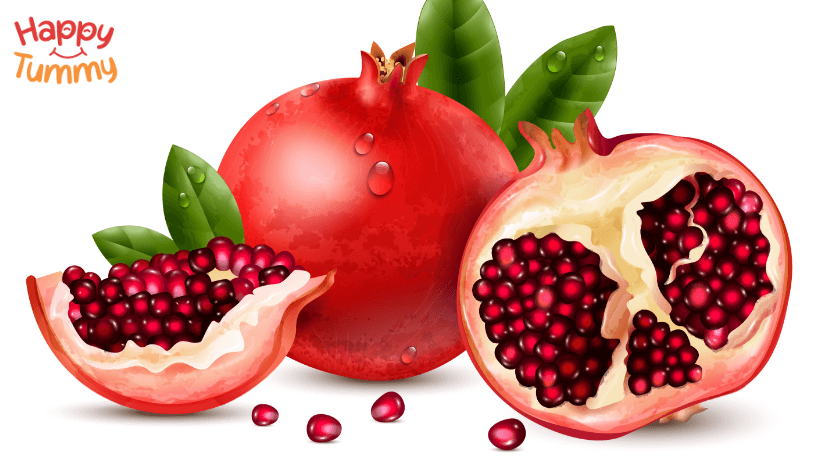
Pomegranates have polyphenol compounds called punicalagin or ellagitannins.[26] These antioxidants may aid in lowering the accumulation of plaque and cholesterol and preventing the hardening of the arterial walls.[27]
Plant pigments called anthocyanins and anthoxanthins promote heart health and are also abundant in pomegranates. Moreover, this may reduce LDL or “bad” cholesterol, which clogs your arteries. [28] [29]
Additionally, it can raise HDL cholesterol, or “good” cholesterol, which may reduce the risk of heart attacks and strokes.
15. Dark Chocolate
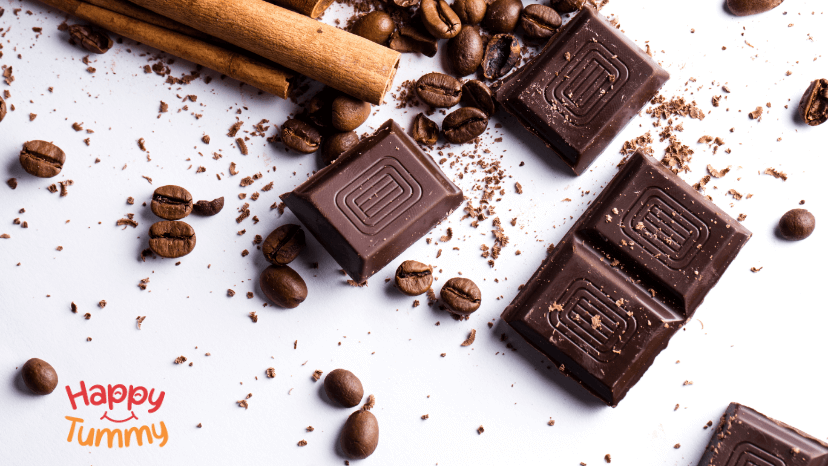
Strong antioxidants in dark chocolate, such as polyphenols, may neutralise free radicals and fight oxidative stress.
Less oxidative stress may shield heart cells and blood arteries from harm, reducing the risk of heart disease.
Dark chocolate also contains cocoa compounds that may benefit heart health by balancing cholesterol.
In dark chocolate, cocoa may raise “good” cholesterol (high-density lipoprotein, or HDL) while lowering “bad” cholesterol (low-density lipoprotein, or LDL) and total cholesterol.
This might improve heart health by reducing blood vessel formation and removing certain toxic fats from circulation.[30]
16. Barley
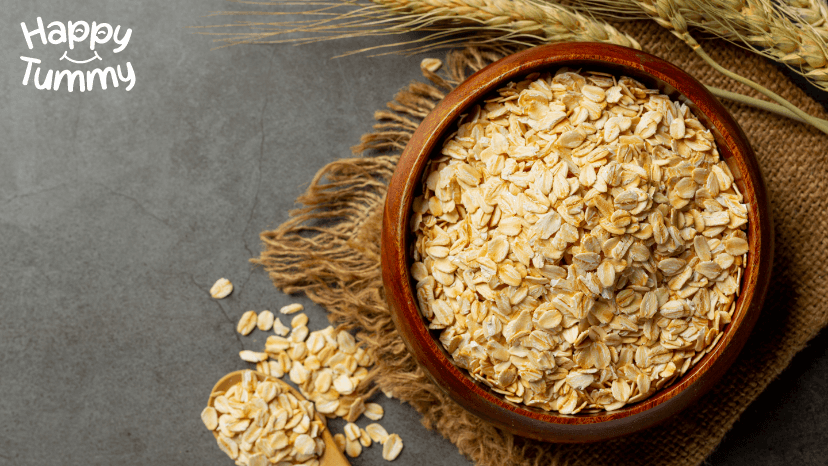
Beta-glucan, a soluble fibre found in barley, binds to cholesterol and eliminates it from the body. Barley water contains tocols and antioxidants that help remove arterial blockages and reduce cholesterol. [31]
Additionally, barley’s niacin content aids with cholesterol management. You may boil it in soups or stews or cook it like rice.
17. Oatmeal
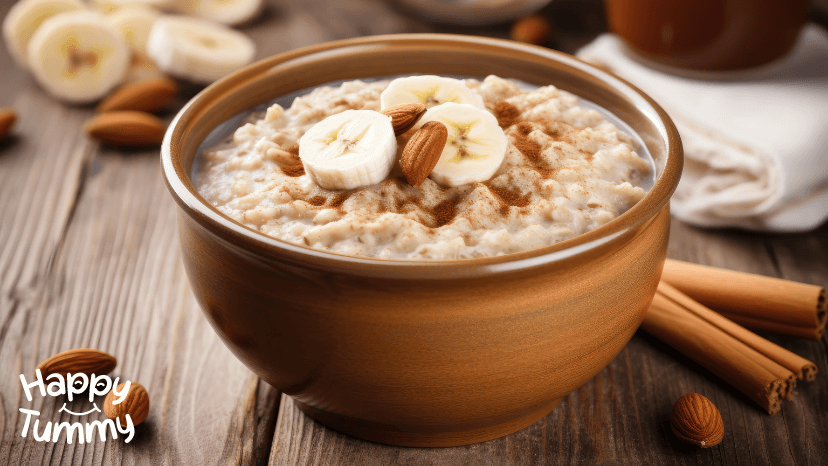
Because of its high soluble fibre content, oats may help reduce LDL cholesterol levels, or the “bad” cholesterol. In addition to slowing digestion, soluble fibre may lower the risk of cardiovascular disease.
It has antioxidants that can strengthen heart health and combat free radicals. Oats include magnesium, which can lower blood pressure and relax blood vessels. [32]
A warm bowl of oats prevents snack hits and keeps you full for hours.
18. Salmon
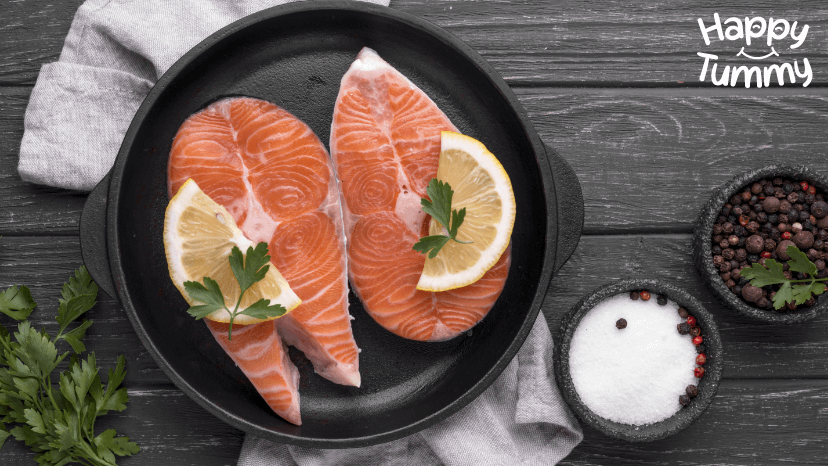
Omega-3 fatty acids, good fats found in fatty fish like salmon, may help maintain heart health by assisting our bodies in controlling the contraction and relaxation of artery walls and perhaps lowering inflammation.[33]
If heart disease concerns you, eating at least two servings of fish each week may lower your risk.
19. Dairy and Dairy Alternatives
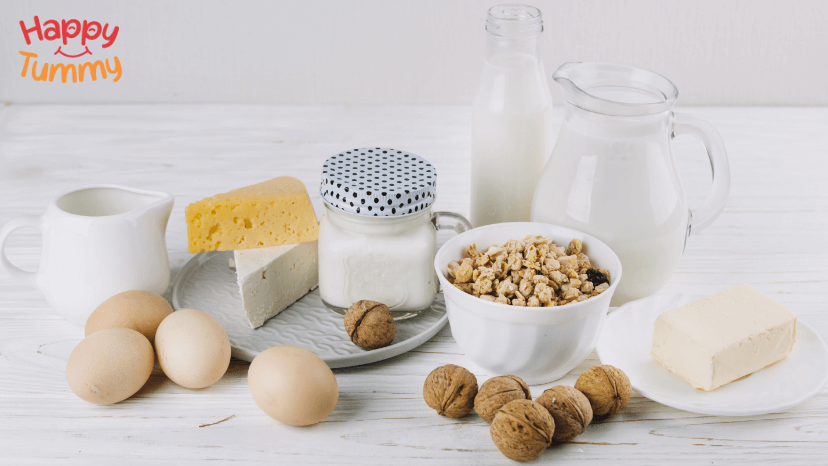
Calcium, potassium, vitamin D, and protein are the main elements found in dairy products that help support heart health.
These nutrients are good for cardiovascular health because they may help control blood pressure and are present in large quantities in foods like milk, yoghurt, and cheese. [34]
Eat them in moderation, preferably the reduced- or low-fat kinds or skimmed milk.
20. Apple

Apples are undoubtedly heart-healthy not only for what they do include but also because of what they don’t—namely, saturated fat, sodium, and cholesterol, which may all be detrimental to heart health.
Apples may help heart health because they contain soluble fibre linked to a decreased risk of heart disease. The fact that they provide polyphenols might be another factor.[35]
Lifestyle Tips For A Healthy Heart
Here are a few more heart-healthy tips:
- Regular exercise
- Avoid prolonged sitting
- Limit or preferably avoid smoking
- Reducing stress with practices like yoga or mindfulness
- Try to follow a good sleep regimen in terms of both quantity and quality.
However, careful execution also includes a well-balanced diet. A dietician or nutritionist can assist you in creating a heart-healthy food plan.
Make an appointment with our certified nutritionist to discuss lifestyle modifications if you have a history of heart disease or want to improve your health.
Takeaway
Starting and adhering to eating foods that promote heart health is a process. Making more significant dietary adjustments may be challenging for someone accustomed to regularly consuming processed foods and refined carbohydrates.
Nutritious staple foods to incorporate into the cardiac diet include whole grains, vegetables, legumes, and fatty salmon. Cut back on processed meals, sugar, salt, and saturated fats.
People can benefit from making dietary plans and paying attention to what they eat when they’re eating out. Managing stress and exercising regularly are also suitable for heart health.
Therefore, think about packing some of these heart-healthy goods in your basket the next time you go grocery shopping.
Frequently Asked Questions
A healthy diet, regular exercise, and blood pressure and cholesterol management contribute to heart health and disease prevention. Low salt consumption, appropriate training, and medication adherence can all help persons with weak hearts avoid developing new issues.
Try to substitute items with healthy unsaturated fats instead of saturated fats in your diet. Oils, nuts, seeds, avocados, and seafood are all sources of unsaturated fats. Monounsaturated and polyunsaturated fats, ideal for heart health, are abundant in healthy cooking oils.
Breathing difficulties, an unstable pulse, swollen legs, bulging neck veins, and noises from stored fluid in your lungs are all possible symptoms – fluctuating blood pressure, palpitation, unexplained weakness & tiredness. Your physician will look for these and other heart cardiovascular symptoms. An echocardiography is frequently the most effective test for diagnosing CVD (cardiovascular disease).












